Introduction
Autism spectrum disorder (ASD) is not limited to childhood, as recent awareness has shown that 1 in 45 adults in the United States are diagnosed with ASD. This includes adult women, who may experience autism with subtle differences from their male counterparts.
Recognizing the signs of autism in adult women is crucial for providing support and understanding. This article explores the core indicators of autism in adults, communication challenges, emotional and behavioral patterns, sensitivity to stimuli, maintaining relationships, strategies for overcoming challenges, and the importance of self-awareness and diagnosis. By understanding these aspects, we can better support and empower adult women with autism to ensure their well-being in an inclusive society.
Recognizing Symptoms of Autism in Adult Women
Autism spectrum disorder (ASD) is a condition that persists throughout a person's life, and recent awareness has highlighted that 1 in 45 adults in the United States are diagnosed with ASD. Despite common misconceptions, autism is not exclusive to childhood; adult women can and do experience autism, often with subtleties that differ from their male counterparts. Recognizing the signs in adult women is vital for providing the necessary support and understanding.
The core indicators of autism—difficulties in social interactions and communication, alongside restricted and repetitive behaviors—manifest in adults as they do in children. However, many adults may have lived without a diagnosis or with a misdiagnosis, unaware that their challenges are related to ASD. Acknowledging these signs in adult women is a critical step towards identifying and understanding undiagnosed autism, allowing for better support and a more inclusive society.

Communication Challenges and Social Interactions
Adult women with autism may find navigating social landscapes particularly challenging. These challenges are often rooted in communication differences, where the nuances of social interaction—like maintaining eye contact or interpreting nonverbal cues—do not come naturally. Many experience difficulties with the give-and-take of conversation, sometimes appearing overly formal or misunderstanding figurative language.
Such hurdles are not just personal but can extend into their professional lives, affecting career progression and workplace relationships. It's important to recognize that these communication differences are a reflection of the neurological diversity inherent in autism spectrum disorder (ASD). With statistics indicating that 1 in 45 adults in the U.S. are diagnosed with ASD, awareness and understanding are key.
Increased screening and advocacy have brought more attention to autism, yet many adults, particularly women, may remain undiagnosed or misdiagnosed. Recognizing the signs of autism is crucial in supporting those who may have navigated life without understanding the root of their social and communication difficulties. The hallmarks of autism, including challenges with social communication and restricted, repetitive behaviors, manifest in adults as they do in children, making it essential to consider these signs in adult diagnosis.
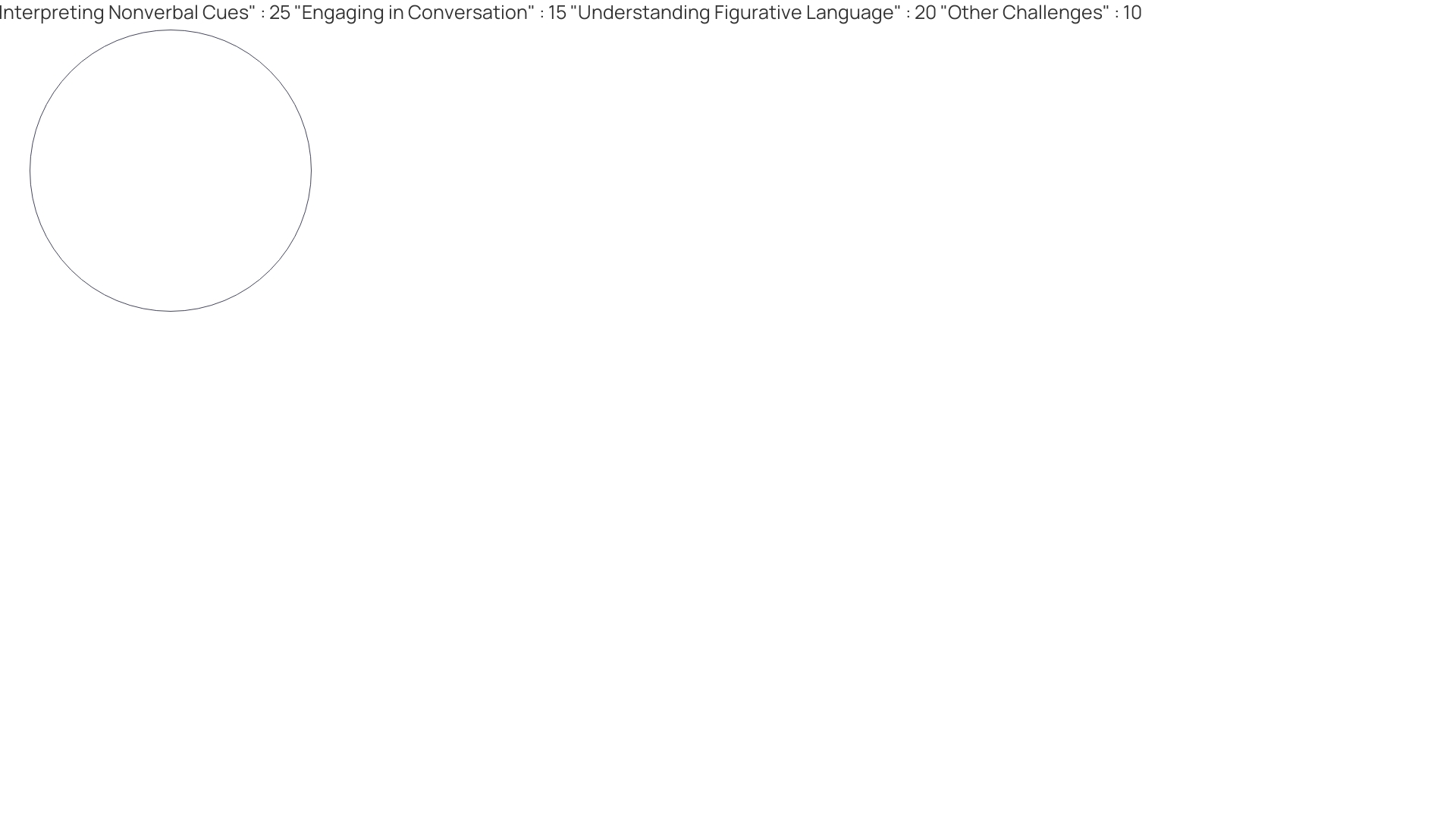
Emotional and Behavioral Patterns
Autism spectrum disorder (ASD) affects approximately 1 in 45 adults in the U.S., many of whom may be undiagnosed or misdiagnosed. Among adult women, ASD can manifest in unique emotional and behavioral patterns.
Heightened sensitivity to sensory input is a common experience; for instance, loud noises, intense lighting, or specific textures can be overwhelming, leading to distress. Furthermore, women with autism may develop repetitive behaviors or have particular interests and routines that provide a sense of structure and comfort. Understanding these signs is crucial for recognizing ASD in adult women and fostering an environment that supports their well-being.
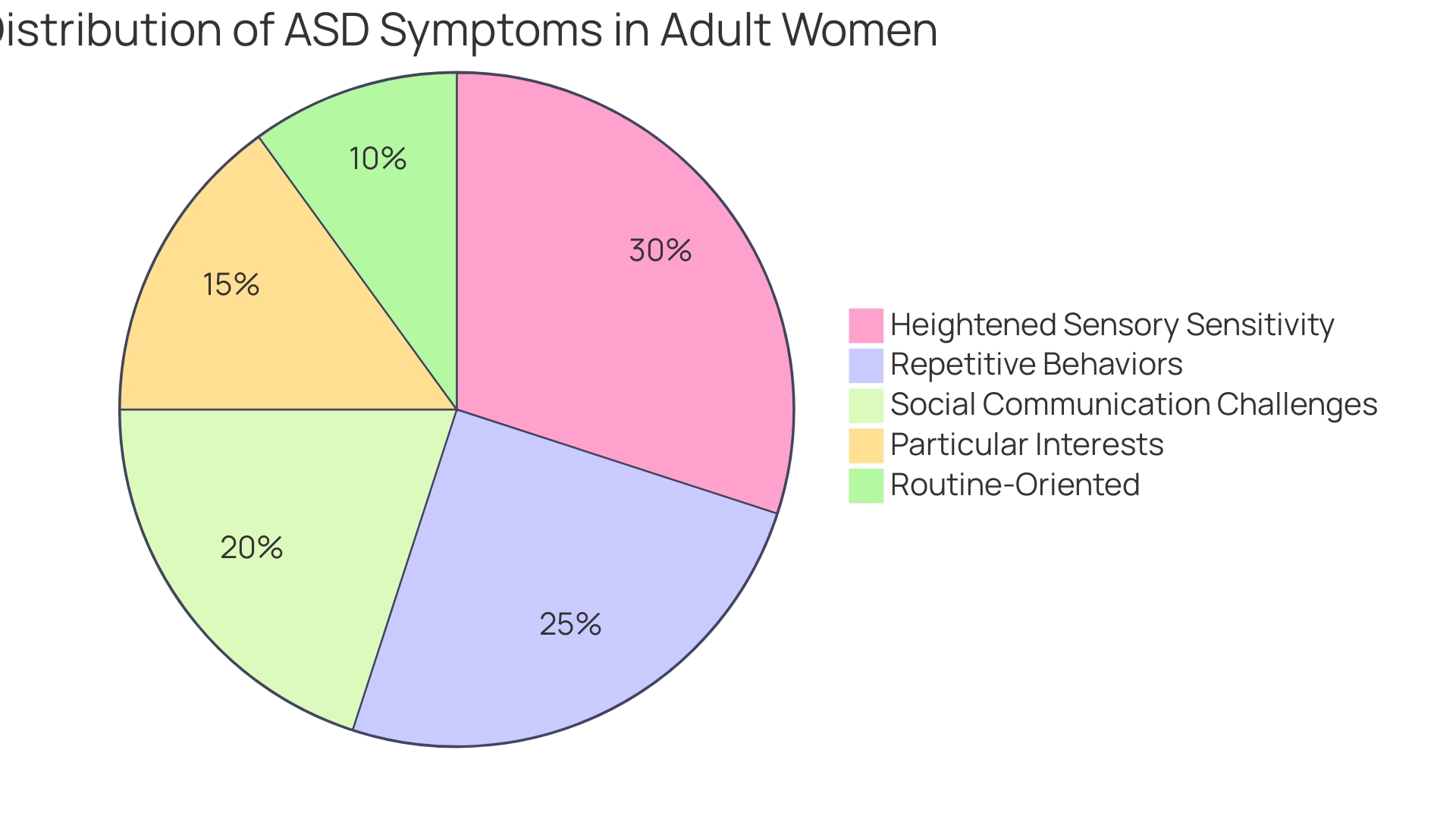
Sensitivity to Stimuli and Repetitive Behaviors
Autism spectrum disorder (ASD) affects approximately 1 in 45 adults in the U.S., yet many individuals may go through life without a diagnosis, attributing their experiences to other causes. Among adult women, distinct signs such as heightened sensitivity to sensory input and the presence of repetitive behaviors often emerge. These may not be immediately recognized as indicators of autism due to societal perceptions and gender-specific expectations.
Women with ASD may find themselves acutely attuned to sensory stimuli, where everyday sounds, sights, or textures can feel overwhelmingly intense. This sensory sensitivity could lead to a preference for certain fabrics or an aversion to environments with bright lights or loud noises. On the other hand, repetitive behaviors serve as a coping mechanism to instill a sense of structure and familiarity.
Such actions might involve rhythmic movements, like rocking, or the repetition of words and phrases, providing comfort in predictability. Understanding these characteristics is crucial for those who suspect they or a loved one might be autistic. Recognizing these signs is the first step towards seeking support and embracing one's identity within the neurodiverse community.
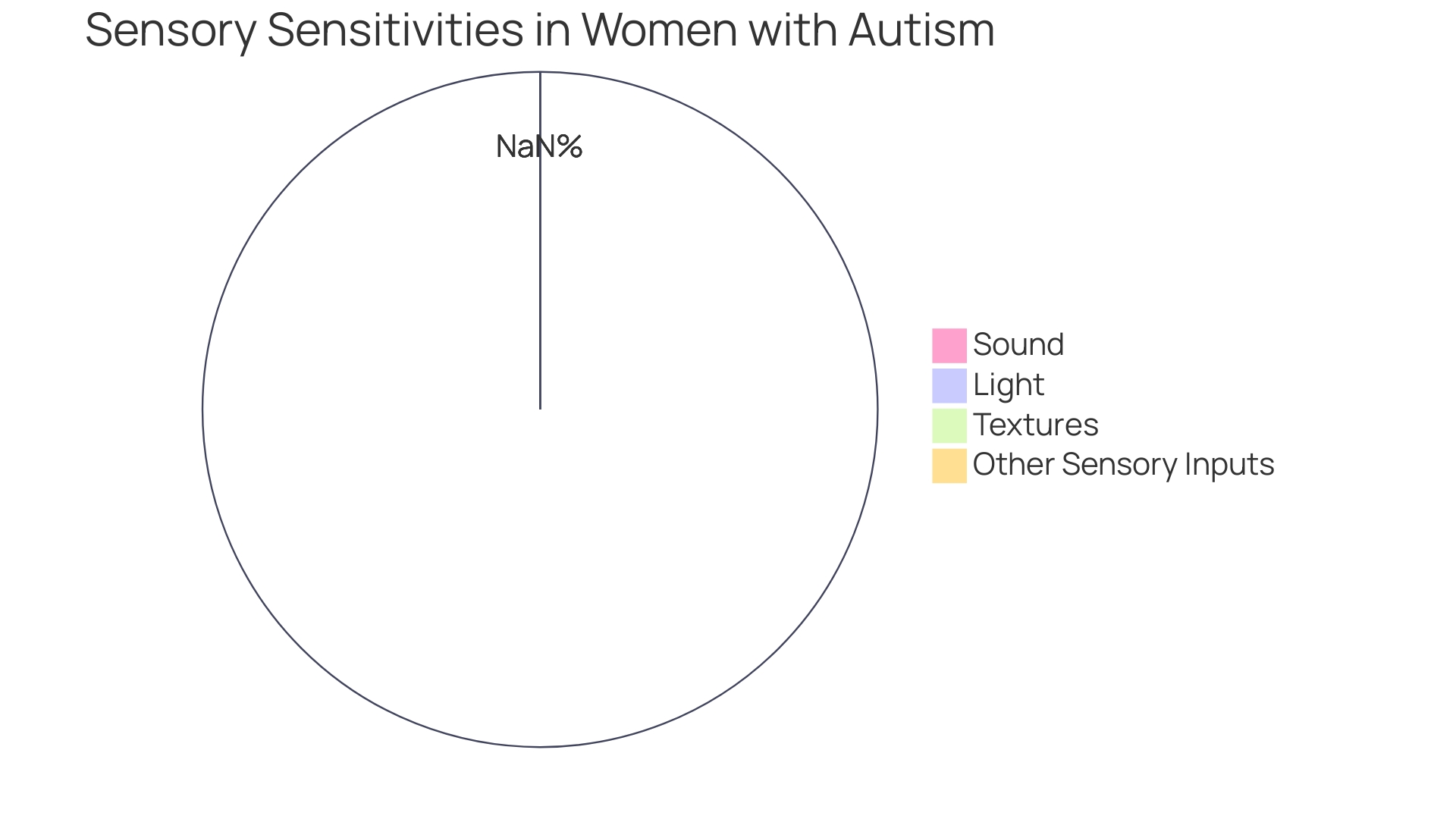
Maintaining Relationships and Building Support
Building and maintaining relationships can be challenging for adult women with autism. Difficulties with social interactions and communication can make it harder to form connections with others.
It is important for these women to focus on building a supportive network of understanding individuals who can provide emotional support and guidance. Seeking out support groups, therapy, or online communities can be beneficial in finding like-minded individuals and sharing experiences.
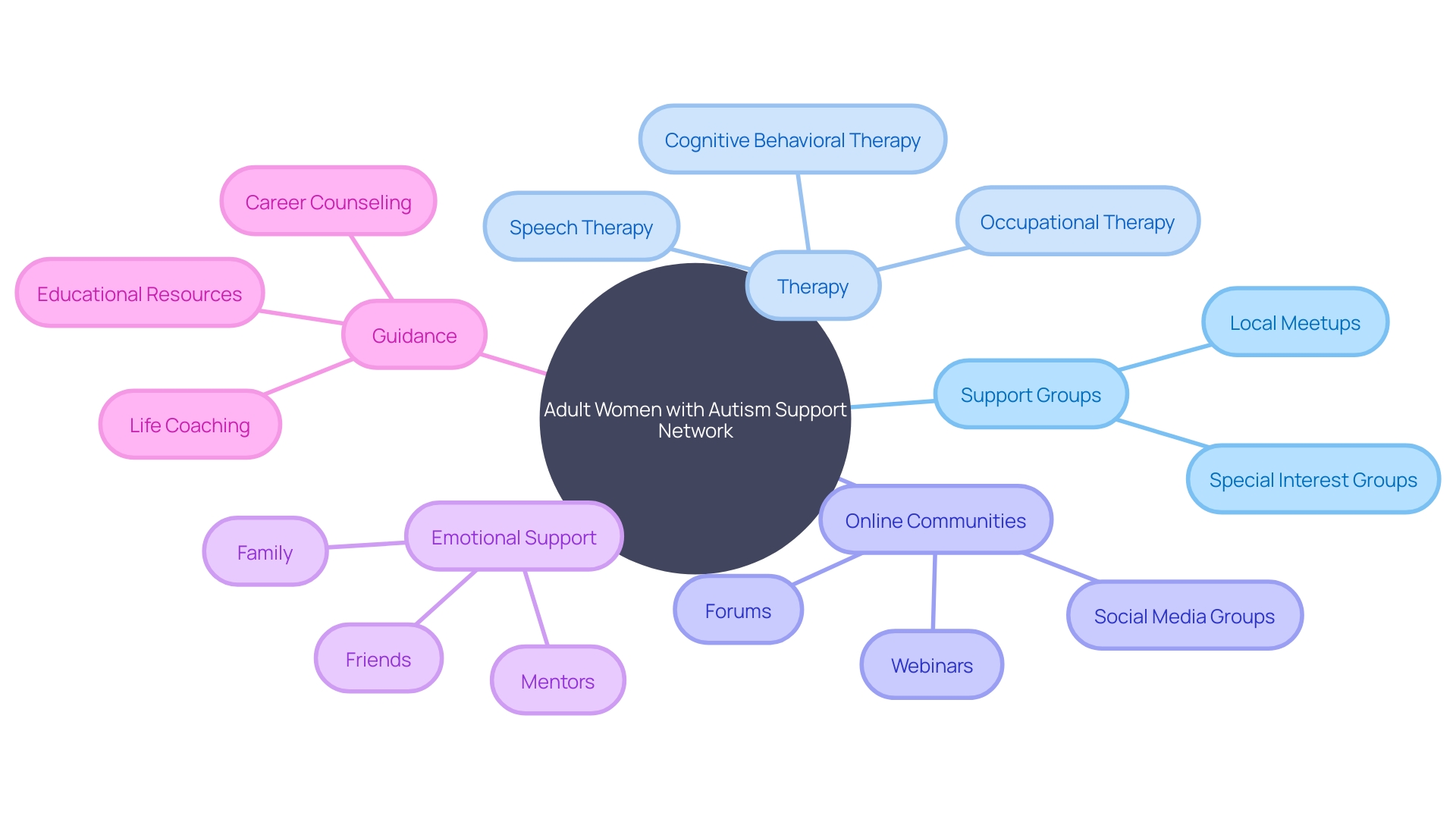
Strategies for Overcoming Challenges
With recent public health initiatives improving awareness and screening, the recognition of autism spectrum disorder (ASD) in adults is on the rise. Despite this, many adults—1 in 45 in the U.S.—may live with undiagnosed or misdiagnosed ASD, often not recognizing the signs that have been present throughout their lives.
Understanding these signs is crucial, as the core characteristics of autism, including difficulties with social communication and the presence of restricted and repetitive behaviors, persist into adulthood. For adult women on the spectrum, cultivating self-awareness is a vital step towards empowerment.
It involves recognizing one's unique strengths and areas for growth, which can lead to more tailored support. Professional assistance, especially from therapists or counselors with expertise in autism, can offer valuable insights and coping strategies. A focus on self-care, through mindfulness practices or enjoyable hobbies, can also play an essential role in enhancing well-being and reducing stress.
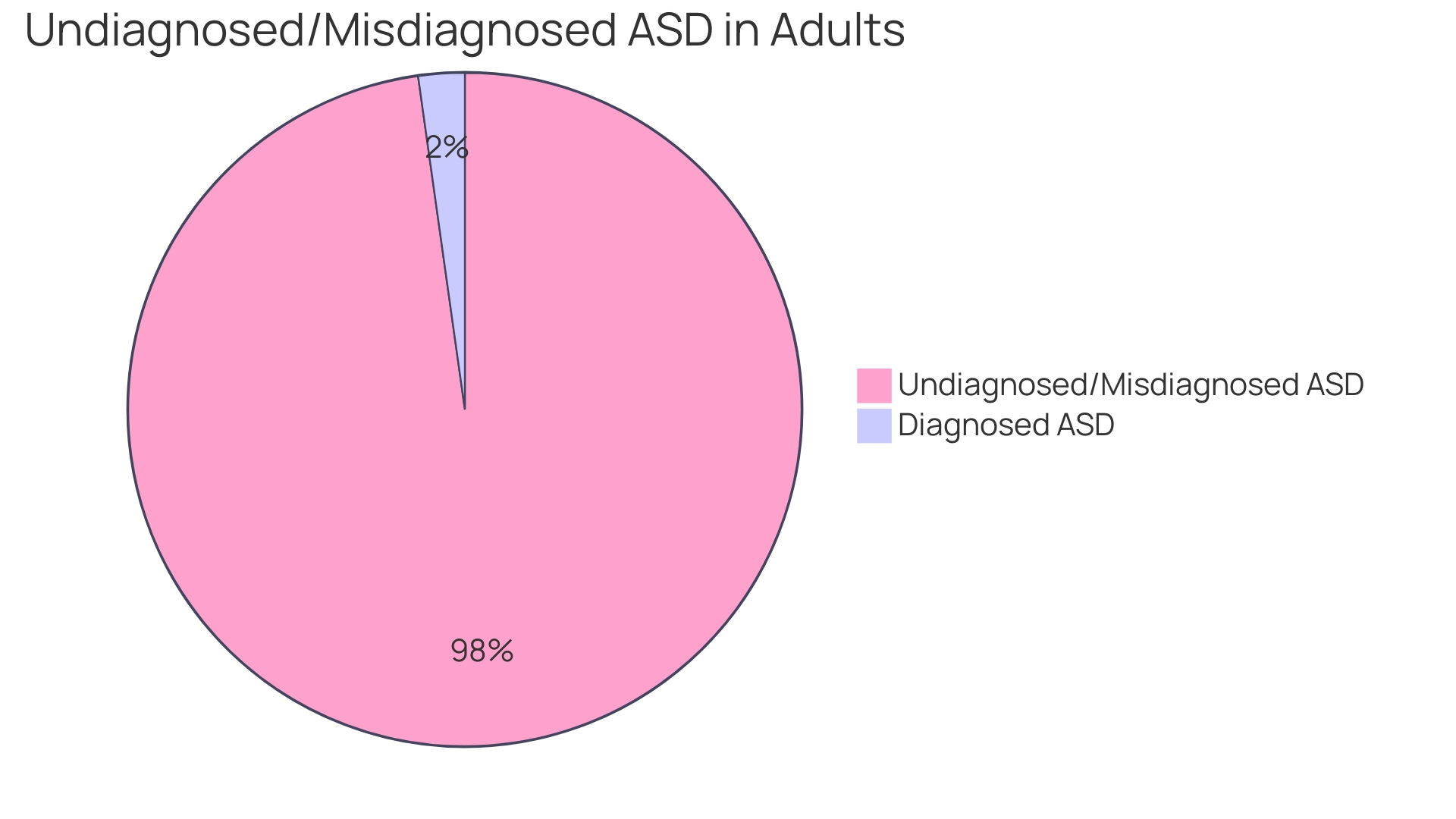
Importance of Self-Awareness and Diagnosis
With an estimated 1 in 45 adults in the U.S. diagnosed with autism spectrum disorder (ASD), it's clear that autism touches many lives, yet it's also true that a significant number might be living without a diagnosis or have been misdiagnosed. For adult women, understanding the nuances of autism is crucial—both for those diagnosed and those who may just be recognizing the signs later in life. The journey of self-awareness begins with acknowledging the possibility of ASD and exploring the hallmarks of autism, which include challenges with social communication and a pattern of restricted and repetitive behaviors.
By identifying these signs, women can take a vital step towards self-empowerment. A formal diagnosis is more than a label; it's a gateway to tailored resources, services, and therapies designed to improve daily life. Embracing their autistic identity allows women to advocate for their needs effectively and ensures that they have the opportunity to thrive in a society that is becoming increasingly aware and accepting of neurodiversity.

Conclusion
In conclusion, recognizing and understanding autism in adult women is vital for providing support and fostering an inclusive society. With 1 in 45 adults in the United States diagnosed with autism spectrum disorder (ASD), it is clear that autism is not limited to childhood.
Adult women with autism may face challenges in communication and social interactions, impacting their personal and professional lives. Recognizing these differences as a reflection of neurological diversity is crucial for acceptance and support.
Heightened sensitivity to sensory input and repetitive behaviors are common among adult women with ASD. Acknowledging these signs is essential for creating an environment that supports their well-being.
Building a supportive network of understanding individuals can help adult women with autism navigate relationships. Seeking out therapy, support groups, or online communities can provide valuable emotional support and guidance.
Strategies such as self-awareness, seeking professional assistance, and practicing self-care through mindfulness or enjoyable hobbies can help overcome challenges associated with autism. Formal diagnosis plays a pivotal role in accessing tailored resources, services, and therapies designed to improve daily life. Embracing one's autistic identity empowers women to advocate for their needs effectively. By recognizing the signs of autism in adult women, we can empower them to thrive in an inclusive society that values neurodiversity. Together, we can create a world where all individuals with ASD are supported, understood, and given the opportunity to lead fulfilling lives.




